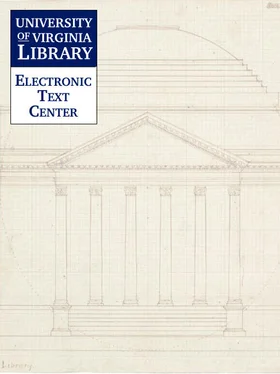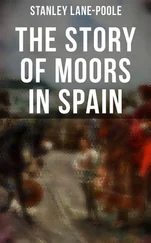Hendrik Loon - The Story of Mankind
Здесь есть возможность читать онлайн «Hendrik Loon - The Story of Mankind» весь текст электронной книги совершенно бесплатно (целиком полную версию без сокращений). В некоторых случаях можно слушать аудио, скачать через торрент в формате fb2 и присутствует краткое содержание. Год выпуска: 2000, Издательство: Electronic Text Center. University of Virginia Library., Жанр: Старинная литература, на английском языке. Описание произведения, (предисловие) а так же отзывы посетителей доступны на портале библиотеки ЛибКат.
- Название:The Story of Mankind
- Автор:
- Издательство:Electronic Text Center. University of Virginia Library.
- Жанр:
- Год:2000
- ISBN:нет данных
- Рейтинг книги:3 / 5. Голосов: 1
-
Избранное:Добавить в избранное
- Отзывы:
-
Ваша оценка:
- 60
- 1
- 2
- 3
- 4
- 5
The Story of Mankind: краткое содержание, описание и аннотация
Предлагаем к чтению аннотацию, описание, краткое содержание или предисловие (зависит от того, что написал сам автор книги «The Story of Mankind»). Если вы не нашли необходимую информацию о книге — напишите в комментариях, мы постараемся отыскать её.
The Story of Mankind — читать онлайн бесплатно полную книгу (весь текст) целиком
Ниже представлен текст книги, разбитый по страницам. Система сохранения места последней прочитанной страницы, позволяет с удобством читать онлайн бесплатно книгу «The Story of Mankind», без необходимости каждый раз заново искать на чём Вы остановились. Поставьте закладку, и сможете в любой момент перейти на страницу, на которой закончили чтение.
Интервал:
Закладка:
It is little enough we know and the rest is darkness.
PREHISTORIC MAN
PREHISTORIC MAN BEGINS TO MAKE THINGS FOR HIMSELF.
EARLY man did not know what time meant. He kept no records of birthdays or wedding anniversaries or the hour of death. He had no idea of days or weeks or even years. But in a general way he kept track of the seasons for he had noticed that the cold winter was invariably followed by the mild spring--that spring grew into the hot summer when fruits ripened and the wild ears of corn were ready to be eaten and that summer ended when sudden gusts of wind swept the leaves from the trees and a number of animals were getting ready for the long hibernal sleep.
But now, something unusual and rather frightening had happened. Something was the matter with the weather. The warm days of summer had come very late. The fruits had not ripened. The tops of the mountains which used to be covered with grass now lay deeply hidden underneath a heavy burden of snow.
Then, one morning, a number of wild people, different from the other creatures who lived in that neighbourhood, came wandering down from the region of the high peaks. They looked lean and appeared to be starving. They uttered sounds which no one could understand. They seemed to say that they were hungry. There was not food enough for both the old inhabitants and the newcomers. When they tried to stay more than a few days there was a terrible battle with claw-like hands and feet and whole families were killed. The others fled back to their mountain slopes and died in the next blizzard.
But the people in the forest were greatly frightened. All the time the days grew shorter and the nights grew colder than they ought to have been.
Finally, in a gap between two high hills, there appeared a tiny speck of greenish ice. Rapidly it increased in size. A gigantic glacier came sliding downhill. Huge stones were being pushed into the valley. With the noise of a dozen thunderstorms torrents of ice and mud and blocks of granite suddenly tumbled among the people of the forest and killed them while they slept. Century old trees were crushed into kindling wood. And then it began to snow.
It snowed for months and months. All the plants died and the animals fled in search of the southern sun. Man hoisted his young upon his back and followed them. But he could not travel as fast as the wilder creatures and he was forced to choose between quick thinking or quick dying. He seems to have preferred the former for he has managed to survive the terrible glacial periods which upon four different occasions threatened to kill every human being on the face of the earth.
In the first place it was necessary that man clothe himself lest he freeze to death. He learned how to dig holes and cover them with branches and leaves and in these traps he caught bears and hyenas, which he then killed with heavy stones and whose skins he used as coats for himself and his family.
Next came the housing problem. This was simple. Many animals were in the habit of sleeping in dark caves. Man now followed their example, drove the animals out of their warm homes and claimed them for his own.
Even so, the climate was too severe for most people and the old and the young died at a terrible rate. Then a genius bethought himself of the use of fire. Once, while out hunting, he had been caught in a forest-fire. He remembered that he had been almost roasted to death by the flames. Thus far fire had been an enemy. Now it became a friend. A dead tree was dragged into the cave and lighted by means of smouldering branches from a burning wood. This turned the cave into a cozy little room.
And then one evening a dead chicken fell into the fire. It was not rescued until it had been well roasted. Man discovered that meat tasted better when cooked and he then and there discarded one of the old habits which he had shared with the other animals and began to prepare his food.
In this way thousands of years passed. Only the people with the cleverest brains survived. They had to struggle day and night against cold and hunger. They were forced to invent tools. They learned how to sharpen stones into axes and how to make hammers. They were obliged to put up large stores of food for the endless days of the winter and they found that clay could be made into bowls and jars and hardened in the rays of the sun. And so the glacial period, which had threatened to destroy the human race, became its greatest teacher because it forced man to use his brain.
HIEROGLYPHICS
THE EGYPTIANS INVENT THE ART OF
WRITING AND THE RECORD OF
HISTORY BEGINS
THESE earliest ancestors of ours who lived in the great European wilderness were rapidly learning many new things. It is safe to say that in due course of time they would have given up the ways of savages and would have developed a civilisation of their own. But suddenly there came an end to their isolation. They were discovered.
A traveller from an unknown southland who had dared to cross the sea and the high mountain passes had found his way to the wild people of the European continent. He came from Africa. His home was in Egypt.
The valley of the Nile had developed a high stage of civilisation thousands of years before the people of the west had dreamed of the possibilities of a fork or a wheel or a house. And we shall therefore leave our great-great-grandfathers in their caves, while we visit the southern and eastern shores of the Mediterranean, where stood the earliest school of the human race.
The Egyptians have taught us many things. They were excellent farmers. They knew all about irrigation. They built temples which were afterwards copied by the Greeks and which served as the earliest models for the churches in which we worship nowadays. They had invented a calendar which proved such a useful instrument for the purpose of measuring time that it has survived with a few changes until today. But most important of all, the Egyptians had learned how to preserve speech for the benefit of future generations. They had invented the art of writing.
We are so accustomed to newspapers and books and magazines that we take it for granted that the world has always been able to read and write. As a matter of fact, writing, the most important of all inventions, is quite new. Without written documents we would be like cats and dogs, who can only teach their kittens and their puppies a few simple things and who, because they cannot write, possess no way in which they can make use of the experience of those generations of cats and dogs that have gone before.
In the first century before our era, when the Romans came to Egypt, they found the valley full of strange little pictures which seemed to have something to do with the history of the country. But the Romans were not interested in ``anything foreign'' and did not inquire into the origin of these queer figures which covered the walls of the temples and the walls of the palaces and endless reams of flat sheets made out of the papyrus reed. The last of the Egyptian priests who had understood the holy art of making such pictures had died several years before. Egypt deprived of its independence had become a store-house filled with important historical documents which no one could decipher and which were of no earthly use to either man or beast.
Seventeen centuries went by and Egypt remained a land of mystery. But in the year 1798 a French general by the name of Bonaparte happened to visit eastern Africa to prepare for an attack upon the British Indian Colonies. He did not get beyond the Nile, and his campaign was a failure. But, quite accidentally, the famous French expedition solved the problem of the ancient Egyptian picture-language.
One day a young French officer, much bored by the dreary life of his little fortress on the Rosetta river (a mouth of the Nile) decided to spend a few idle hours rummaging among the ruins of the Nile Delta. And behold! he found a stone which greatly puzzled him. Like everything else in Egypt it was covered with little figures. But this particular slab of black basalt was different from anything that had ever been discovered. It carried three inscriptions. One of these was in Greek. The Greek language was known. ``All that is necessary,'' so he reasoned, ``is to compare the Greek text with the Egyptian figures, and they will at once tell their secrets.''
Читать дальшеИнтервал:
Закладка:
Похожие книги на «The Story of Mankind»
Представляем Вашему вниманию похожие книги на «The Story of Mankind» списком для выбора. Мы отобрали схожую по названию и смыслу литературу в надежде предоставить читателям больше вариантов отыскать новые, интересные, ещё непрочитанные произведения.
Обсуждение, отзывы о книге «The Story of Mankind» и просто собственные мнения читателей. Оставьте ваши комментарии, напишите, что Вы думаете о произведении, его смысле или главных героях. Укажите что конкретно понравилось, а что нет, и почему Вы так считаете.












